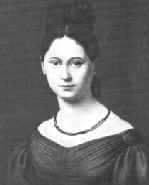
|
1850: March, Marx and Engels write an "Address of Central Authority of League", one of the first documents summing up the proletariat's struggle in revolution and outlining Communists' Program of action in future struggle. The Address contains the basic propositions of Marx' and Engels' teaching on uninterrupted revolution. March-November, Marx and Engels put out six issues of "Neue Reinische Zeitung, Politischokonomische Revue". The journal publishes Marx' "The Class Struggle in France", 1848 to 1850, Engels "The Campaign for the German Imperial Constitution" and "The Peasant War in Germany", as well as their joint international reviews. In all these works, Marx and Engels sum up the results of 1848-49 revolution and continue to develop their revolutionary doctrine. June, Marx and Engels write a second "Address of Central Authority to League", instructing Communist League leaders in the localities on questions of tactics and organization. November, on the proposal of London Circle of Communist League, League's Cologne Central Authority expels Willich-Schapper group for its disruptive activities. Mid-November, Engels moves to Manchester and begins work with Ermen & Engels Firm; this enables him to help Marx family financially. Late November, Engels begins a systematic study of military sciences. December, Engels begins learning Russian. 1851: May-June, Police arrests members of Communist League's Cologne Central Authority and several active members of this organization. Prussian police agents intensify spying on Marx and Engels. June 1851-1862, Marx and Engels contribute to Chartist periodicals, "Notes to People", "People's Paper" and "The Friend of People" and also help Chartist movement. August 1851 to March 1862, Marx contributes to the progressive American newspaper, "New York Daily Tribune", and Engels helps him. Engels writes a series of articles for the paper, entitled "Revolution and Counter-Revolution in Germany" and many others. In 10 years Marx and Engels wrote a latge number of articles for "Tribune" on the national liberation movement, international relations, economics and politics. October 1851-1852, Engels studies Slav languages, history and literature of Slav peoples and reads classic Russian literature. Dec. 3, 1851, In a letter to Marx, Engels gives a thorough description on December 2 coup d'etat in France. Some of the ideas Engels expounds in this letter are used by Marx in his "Eighteenth Brumaire of Louis Bonaparte". Dec. 1851 to March 1852, Marx writes "Eighteenth Brumaire of Louis Bonaparte", in which he elaborates on the theory of revolution. Examining 1848-49 revolution in France, Marx arrives at this important conclusion: The victorious proletariat must tear down the bourgeois state machine. In May 1852, the treatise appears in New York in "Die Revolution", a journal published by Joseph Weydemeyer. 
Jenny Marx, Karl Marx' wife
|
© Copyright Caroun.com. All rights reserved.